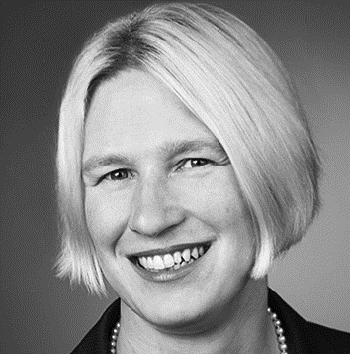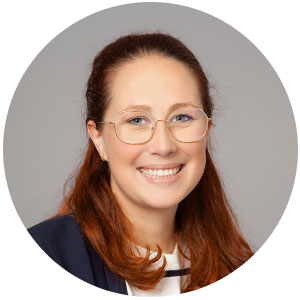The conference dives right into the ongoing debate surrounding the challenging implementation of the ECHA/EFSA guidance for the identification of Endocrine Disruptors and provides participants with all the recent regulatory and scientific developments.
The Conference will be taking place in Cologne/Germany on 30 November and 1 December and you can follow all the exciting contributions via our live stream!
Would you instead prefer to join on-site in Cologne? Then you can find further information here.
The ECHA/EFSA guidance for the identification of Endocrine Disruptors in the context of Regulations (EU) No 528/2012 and (EC) No 1107/2009 requires a highly complex and challenging assessment for all active substances. With the proposed introduction of stricter regulation for EDs under the CLP and REACH Regulations, the challenge has recently been broadened. This conference will dive into the debate surrounding Endocrine Disruptors and covers all the relevant recent regulatory and scientific developments.
Regulatory Developments
Methods: Studies, NAMs & AOPs
Professionals working in the fields of:
Sectors that should take part:
Picture Credit: © Subbotina Anna/shutterstock.com, © chestra - Fotolia.com
PLEASE NOTE: The indicated times refer to Central European Time CET.
For further time zones, please view here.
Lennart Weltje, BASF, Germany
Emily McVey, National Institute for Public Health and the Environment (RIVM) The Netherlands
Jordane Wodli, European Commission, Belgium
Christian Unkelbach, Federal Institute for Occupational Safety and Health (BAuA), Germany
Heli Hollnagel, Dow Europe, Switzerland
Iris Mangas, European Food Safety Authority, Italy (virtual presentation)
Vera Ritz, Federal Institute for Risk Assessment, Germany
Helen Tinwell, Bayer CropScience, France
Bieke Scharlaken, knoell Germany, Germany
Katie Paul Friedman, United States Environmental Protection Agency (US EPA), United States (virtual presentation)
Effrosyni Katsanou, European Commission’s Joint Research Centre, Italy
Alice Tagliati, Enviresearch, United Kingdom
PLEASE NOTE: The indicated times refer to Central European Time CET.
For further time zones, please view here.
Lennart Weltje, BASF, Germany
Emily McVey, National Institute for Public Health and the Environment (RIVM) The Netherlands
Anne Gourmelon, Organisation for Economic Co-operation and Development (OECD), France (virtual presentation)
Eva Vanna Lorenza Negri, University of Bologna, Italy
Alex Charlton, Syngenta, United Kingdom
James Wheeler, Corteva Agriscience, The Netherlands
Pim Leonards, Vrije Universiteit Amsterdam, The Netherlands
Name
Company
Alex Charlton
Syngenta, United Kingdom
Alex Charlton is a Senior Ecotoxicologist and Technical Expert with Syngenta. His focus is Regulatory toxicology, with a special attention to Mechanistic Toxicology.
moreless
Anne Gourmelon
Organisation for Economic Co-operation and Development (OECD), France
Anne Gourmelon has been working for the Organisation for Economic Co-operation and Development (OECD) for twenty years. She started as a Project Manager for chemical safety, including the validation of methods for endocrine disruptors screening and testing, and is now Principal Administrator of the OECD’s Test Guidelines Programme. The programme aims at the development and harmonisation of test methods for chemical safety to meet regulatory needs in OECD member countries, and to enable the mutual acceptance of data across countries.
moreless
Heli M. Hollnagel
Dow Europe, Switzerland
countries, and to enable the mutual acceptance of data across countries. Heli M Hollnagel is a EUROTOX registered Toxicologist, working as Regulatory Toxicologist and EMEA Science Leader at Dow Europe. She is also the Chair of Cefic's Polymers Issue Team and Cefic's LRI Issue Team, as well as a member of the ECETOC Scientific Committee.
moreless
Effrosyni Katsanou
European Commission - Joint Research Centre, Italy
Effrosyni Katsanou is a project officer in the European’s Commission Joint Research Centre (JRC) in Ispra, Italy. Her role includes scientific input to the activities relevant to the Community Strategy on Endocrine Disruptors such as the REACH information requirements update relevant to EDs, the new ECHA guidance document in relation to the new hazard classes for EDs under the CLP regulation, OECD’s activities on endocrine disruptors as well as involvement in PARC-related ED activities. She is a member of the OECD’s Expert Group on better use of academic data and she is leading a case study on how to better use academic data for ED identification.
moreless
Pim Leonards
Vrije Universiteit Amsterdam, The Netherlands
Pim Leonards is a Professor for Environmental Bioanalytical Chemistry at Vrije Universiteit Amsterdam. He has more than 20 years of experience in field and experimental studies related to environmental chemistry, analytical method development, bioaccumulation, indoor exposure assessment, and metabolomics. Nowadays, his focus is on emerging chemicals, indoor exposure assessment and metabolomics.
morelessIris Mangas
European Food Safety Authority (EFSA), Italy
Iris Mangas is a Regulatory Toxicologist. She holds a Ph D in molecular toxicology. Since 2018, she has been a Scientific Officer at EFSA. She is currently in charge of the Peer Review of Pesticides Risk Assessment and supports the developmental activities for improving EFSA Risk assessment methods in the area of developmental neurotoxicity and Endocrine Disruptor properties, including development of IATA case studies and AOPs.
moreless
Emily McVey
National Institute for Public Health and the Environment (RIVM), The Netherlands
Emily McVey is an experienced Regulatory Toxicologist and works at the dutch National Institute for Public Health and the Environment – RIVM. Her specialties include environmental toxicology, wild vertebrates (birds, mammals, amphibians, fish), molecular mechanisms of toxicity, neurodevelopmental toxicity and endocrine disruption testing and assessment.
morelessEva Vanna Lorenza Negri
University of Bologna, Italy
Eva Vanna Lorenza Negri is an Associate Professor at the Department of Medical and Surgical Sciences at the University of Bologna. Her main interests are epidemiology and biostatistics, in particular cancer epidemiology, occupational epidemiology, environmental epidemiology and statistical methods for descriptive and observational epidemiology.
moreless
Katie Paul Friedman
United States Environmental Protection Agency (US EPA), United States
Katie Paul Friedman joined the National Center for Computational Toxicology in the Office of Research and Development at the US EPA in August 2016, where she is currently focused on integration of multiple information streams to address the needs of preliminary risk assessment, with additional interests in uncertainty in alternative and traditional toxicity information, endocrine bioactivity prediction and in vitro kinetics. Previously, she worked as a Regulatory Toxicologist at Bayer CropScience with specialties in neurodevelopmental and endocrine toxicity, high-throughput science, and predictive toxicology. She has been actively involved in multi-stakeholder projects to develop adverse outcome pathways, alternative testing approaches, and the regulatory acceptance of these tools.
moreless
Vera Ritz
Federal Institute for Risk Assessment (BfR), Germany
Vera Ritz is Head of the Unit „Steering and Overall Assessment Biocides“ in the Department „Pesticides Safety“ at the Federal Institute for Risk Assessment (BfR) in Berlin. She has been working at the BfR since 2006 and is involved in assessments, conceptual and research activities regarding EDs.
moreless
Bieke Scharlaken
knoell, Belgium
Bieke Scharlaken is a Regulatory Ecotoxicologist at knoell Germany. She studied Biotechnology at Ghent University in Belgium and is holding a PhD in Biochemistry. Before joining knoell in 2020, she worked in the crop protection and biocide industry in various regulatory roles, for 10 years. At knoell she works in the crop protection sector with a focus on ecotoxicology as well as regulatory affairs. She is also part of the knoell ED expert team and is involved in the assessment of active substances (biocides and crop protection) and co-formulants with respect to endocrine disrupting properties.
moreless
Alice Tagliati
Enviresearch, United Kingdom
Alice Tagliati is a Senior Ecotoxicologist at Enviresearch. She provides environmental risk assessments for plant protection products active substances and related formulations to aid products registration in the EU. Alice has a keen interest in ecotoxicological modelling, and at Enviresearch she specialised in in novel ecotoxicological approaches such as population modelling to answer regulatory questions.
moreless
Helen Tinwell
Bayer CropScience, France
Helen Tinwell has a PhD in genotoxicity and joined Bayer Crop Science in 2005 after having spent 17 years at Syngenta. Until recently, she has worked in research toxicology focusing on method development and mode of action investigations to address endocrine disruption. In 2017 she became team leader of the Regulatory Toxicology group. She leads the development and application of testing strategies for evaluating potential endocrine-disrupting properties of plant protection molecules in mammals and is a member of the ECPA ED Expert Group.
moreless
Christian Unkelbach
Federal Institute for Occupational Safety and Health (BAuA), Germany
Christian Unkelbach holds a PhD in chemistry and a certificate in toxicology. He is currently a scientific officer at the Federal Institute for Occupational Safefy and Health (BAuA), the German Competent Authority for REACH, Biocides, CLP and PIC regulations. Christian serves as the Alternate German member in ECHA's Member State Committee and participates in the Endocrine Disruptors Expert Group.
moreless
Lennart Weltje
BASF, Germany
Lennart Weltje holds a PhD in ecotoxicology and environmental chemistry and currently works as a Senior Ecotoxicologist at BASF conducting risk assessments for PPPs and biocides. He is also an honorary Professor at the Faculty of Agricultural Sciences of the Georg-August University in Goettingen. His former stations include the Dutch National Institute for Public Health and the Environment (RIVM).
moreless
James Wheeler
Corteva Agriscience, United Kingdom
James Wheeler works as Global Regulatory Ecotoxicologist at Corteva Agriscience. His work focuses on environmental risk assessment and ecotoxicology testing. He has a particular interest in fish and amphibian endocrine test methods and is a member of several industry and OECD work groups active in this area.
morelessJordane Wodli
European Commission, Belgium
Jordane Wodli currently serves as a policy advisor national expert on chemicals in the European Commission’s DG Environment.
morelessParticipation Fee: € 1,195.00 plus VAT.
The registration fee includes the following benefits:
Representatives of an authority or a public university are therefore eligible for a reduced fee of € 695.00 plus VAT per person (please provide evidence). The reduced fee cannot be combined with other rebates.
Group Reductions
For joint bookings received from one company we grant a 15% discount from the third participant onwards.
Terms of Cancellation / Book without Risk
You can cancel your participation in our online events free of charge and without giving reasons in writing up to 1 week before the start of the event. In the case of later cancellations and non-login to the online event, no participation fees can be refunded.
In this case, however, you will receive access to the documentation after the event.
You can name a substitute participant free of charge at any time.

Anne Möller
Programme and conceptual design
+49 231 75896-84
amoeller@akademie-fresenius.de

Anne Möller
Programme and conceptual design
+49 231 75896-84
amoeller@akademie-fresenius.de

Anne Möller
Programme and conceptual design
+49 231 75896-84
amoeller@akademie-fresenius.de

Danielle Sörries
Organisation and participant management
+49 231 75896-74
dsoerries@akademie-fresenius.de

Danielle Sörries
Organisation and participant management
+49 231 75896-74
dsoerries@akademie-fresenius.de
Present your Company at the Event.
You can personally present your products and services directly to your specified target group. We are happy to provide you with further information on our range of available options – from displaying company information at the reception counter to presenting your company with an exhibition stand.
We would be pleased to assist you personally:

Monika Stratmann
Phone: +49 231 75896-48
info@akademie-fresenius.de
We offer journalists and editors a platform where they can get in touch with the experts.
If you are the editor of a specialist publication and interested in a press pass or media partnership, please contact us well in advance. We are happy to advise you.
Please contact us:

Katharina Geraridis
Phone: +49 231 75896-67
presse@akademie-fresenius.de
© Die Akademie Fresenius GmbH